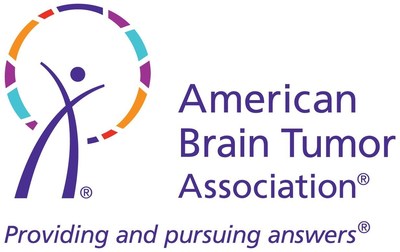

CHICAGO, July 25, 2017 /PRNewswire-USNewswire/ -- Brain tumor survivors are at significant risk of experiencing losses in physical strength, cognition and mobility due to the tumor itself and the treatments used to control tumor growth. These symptoms often impact the patient's quality of life as they can put limitations on their ability to maintain autonomy and independent living including driving, returning to work, pursuing leisure activities and engaging in everyday social interactions. Interventions for mitigating fatigue, sleep disturbances, mood swings, cognitive deficits (attention, working memory and processing efficiency), headaches and seizures will be the focus of several sessions planned for the American Brain Tumor Association's (ABTA) Annual Patient and Family Conference, Redefining Survivorship through Science, Technology and Clinical Innovation being held at The Westin O'Hare in Rosemont, Ill. on August 4-5.

"Patients and their families are too often unprepared, overwhelmed and ill-equipped to navigate the myriad physical and cognitive symptoms and side effects brought on by their tumor and tumor treatments," said Elizabeth M. Wilson, ABTA president and CEO. "This year's conference brings together several experts in both pediatric and adult brain tumor symptom management to provide attendees with information on current approaches and new research efforts in restoring physical and cognitive functioning that have been shown to improve quality of life and overall survivorship."
Morning panel presentations on day two of the conference feature topics on "Engaging Patients in Research" including:
Computerized Cognitive Training: Brain Games & Brain Training
Heather Conklin, PhD, St. Jude Children's Hospital
The International Low Grade Glioma Registry
Elizabeth Claus, MD, PhD, Brigham and Women's Hospital and Yale School of Public Health
Meningiomas and Fatigue
Gelareh Zadeh, MD, PhD, FRCSC, Princess Margaret Cancer Centre, Toronto
Breakout sessions addressing symptom management and treatment side effects include:
Altering Metabolism for Brain Tumor Therapy: Food for Thought
Adrienne Scheck, PhD, Barrow Neurological Institute
Leonora Renda, MS, RDN, Dignity Health
Depression & Mood Swings
Debra Kangisser, PA-C, Cleveland Clinic
Brain Tumor in Adults & Rehabilitation
Rajesh R. Yadav, MD, The University of Texas MD Anderson Cancer Center
Seizure Management in Neuro-Oncology
Rima Lukas, MD, Northwestern University
The ABTA National Patient & Family Conference, Redefining Survivorship through Science, Technology and Clinical Innovation is being held at The Westin O'Hare in Rosemont, Ill., August 4-5. Advance registration is encouraged; walk-in registration will be based upon space availability.
To view the conference program and register, visit www.braintumorconference.org, or call 800-886-ABTA (2282) or email info@abta.org.
ABOUT THE AMERICAN BRAIN TUMOR ASSOCIATION
Founded in 1973, the American Brain Tumor Association was the first national patient advocacy organization committed to funding brain tumor research and providing education and information for people of all tumor types and all ages. For more information, visit www.abta.org or call 800-886-ABTA (2282).
CONTACT: Martha Carlos
mcarlos@abta.org
773-577-8790
SOURCE American Brain Tumor Association